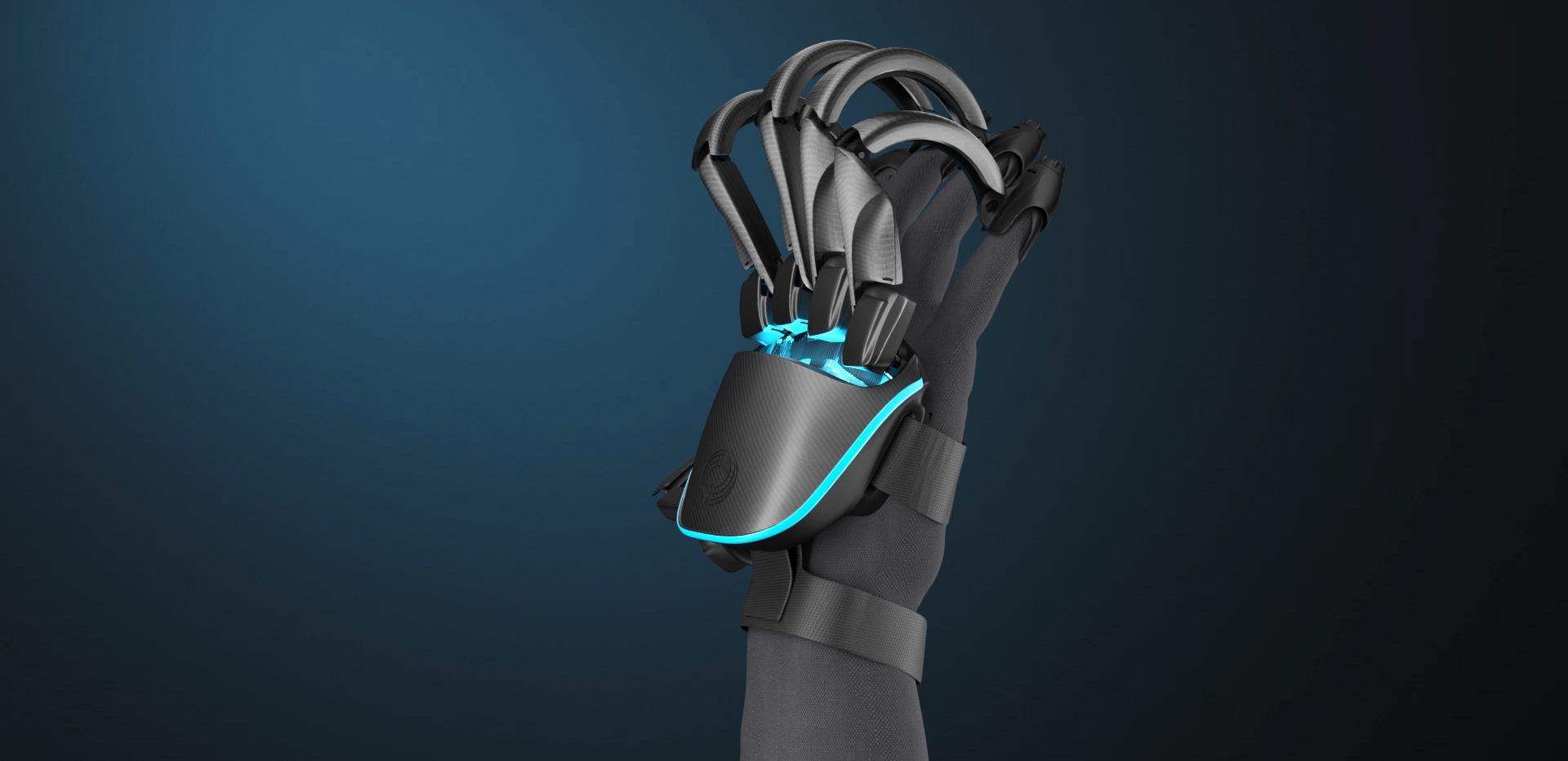
October 30, 2021
AUBURN, Alabama – A team of investigators at Auburn University is taking an innovative approach to training health care students about disease states and patient education by engaging in immersive virtual reality experiences.
Led by Kimberly Garza, associate professor in the Harrison School of Pharmacy’s Department of Health Outcomes Research and Policy, the team was recently awarded a Student Learning Through Immersive Virtual Experience grant from Auburn’s Office of Information Technology and the Biggio Center for the Enhancement of Teaching and Learning.
Titled “Combining Haptics with VR to Support Professional Identity Development in Student Pharmacists through Empathy for Patients,” the project combines virtual reality and haptic devices—mechanical devices that mediate communication between a user and computer—to expose students to various physical limitations patients may experience.
Health care providers and students are knowledgeable about disease states and various physical conditions, but for the most part have never experienced it firsthand. This immersive experience will allow students to feel what it is like to live with certain conditions and have a better understanding of what patients are going through.
“The salience of the patient experience may be greatly enhanced using an immersive technology, such as virtual reality, paired with haptic devices to simulate physical impairments associated with chronic disease,” said Garza. “Virtual reality creates a feeling of actually being there, a feeling that events are actually happening and the feeling that you are actually inhabiting the virtual body.”
The grant supports the purchase of gloves made by the company, TESLASUIT. By wearing the gloves and engaging in a virtual reality simulation, students will feel the physical limitations from a hand and individual finger level of certain conditions. By actually feeling what the experience is like, students can gain empathy for patients with these conditions.
“Empathy for patients among health care providers is a primary component of patient-centered care and is also one mechanism to support professional identity development in health professions students, allowing them to discover their role in addressing patient needs,” said Garza. “Therefore, empathy-building learning activities are critical to the successful development of professional identity among pharmacy students.”
The project will focus on joint immobility in the first iteration, with plans to expand to other physical limitations, such as tremor, vision impairment, and hearing loss. The glove can help create a realistic feeling of joint immobility by providing forced feedback to make grasping and manipulating objects more difficult.
Students can attempt to carry out various tasks, like opening a pill bottle or using an inhaler wearing the gloves, to experience the hardships their patients might experience. The virtual reality component also adds more visual and auditory input to make the whole experience seem more real.
Collaborating with Garza on the project is a diverse group of faculty and staff, bringing a variety of perspectives to the experience. Others on the team include Gary Hawkins, Chris Loughnane, and Adelia Grabowski, Auburn University Libraries; Cheryl Seals and Chad Rose, Samuel Ginn College of Engineering; Brad Wright, Harrison School of Pharmacy; and Michael Grayson, Information Technology in the Raymond J. Harbert College of Business.
With funding supporting this project, it opens doors for other applications of virtual reality and haptic devices, including use of a full-body TESLASUIT. Utilizing the technology can help patients and practitioners make informed decisions on disease treatment by experiencing what it is actually like living with the disease.
“In addition to this project, our team is exploring the use of haptics and virtual reality, including a full haptic suit, to simulate disease progression in conditions, such as rheumatoid arthritis,” said Garza. “The idea is that we can use virtual reality and haptics in patients who have been newly diagnosed with a disease, like rheumatoid arthritis, to show them how they might expect their condition to progress using various treatment options compared to no treatment.”
----------
Auburn University’s Harrison School of Pharmacy is ranked among the top 25 percent of all pharmacy schools in the United States, according to U.S. News & World Report. Fully accredited by the Accreditation Council for Pharmacy Education (ACPE), the School offers doctoral degrees in pharmacy (Pharm.D.) and pharmaceutical sciences (Ph.D.) while also offering a master’s in pharmaceutical sciences. The School's commitment to world-class scholarship and interdisciplinary research speaks to Auburn's overarching Carnegie R1 designation that places Auburn among the top 100 doctoral research universities in the nation. For more information about the School, please call 334.844.8348 or visit http://pharmacy.auburn.edu.